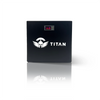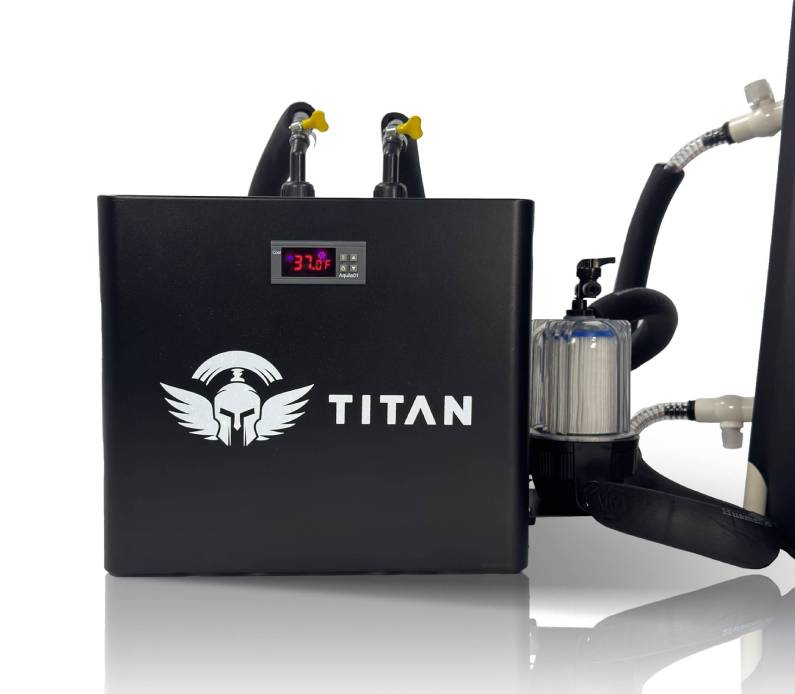During pregnancy, a period of extreme emotional and physical upheaval, many expectant mothers seek ways to keep themselves healthy and lessen discomfort. Cold plunging, or submerging oneself in cold water, has gained popularity recently because of theories about possible health advantages. When pregnant, though, you must weigh the benefits and risks and take all necessary precautions.
Benefits of Cold Water Immersion for Expectant Mothers
Enhanced Mood and Stress Relief
The endorphins are the body's natural feel-good chemicals, and they can be released in response to a cold plunge. If a pregnant woman is suffering from anxiety, prenatal depression, or mood fluctuations, this release may help her feel better overall. Feeling the cool water on one's skin can have a calming effect and improve one's mood and well-being.
Improved Circulation
During pregnancy, it can be especially helpful to immerse yourself in cold water since it increases blood flow. Increased blood flow alleviates edema and pain in areas like the legs and feet that are common during pregnancy. The heart and lungs work harder to provide oxygen and nutrients to the growing baby and mother during pregnancy, thus increased blood flow is a huge help to them.
Reduced Inflammation
The anti-inflammatory properties of cold water can help reduce swelling and soreness in the joints, which are typical complaints among pregnant women. Cold plunges may alleviate swelling, which in turn may ease pain in the hips, knees, and ankles of pregnant women, making it easier for them to go about their everyday lives.
Risks and Potential Dangers of Cold Plunges During Pregnancy
Hypothermia
When submerged in frigid water for an extended time, the body might experience hypothermia, a state in which heat loss exceeds heat production. Complications, such as decreased blood supply to the placenta, might develop as a result of hypothermia, which endangers the health of the mother and the unborn child. It is essential to keep an eye on core temperature and restrict submersion duration to avoid hypothermia.
Slips and Falls
Pregnant women are especially vulnerable to the dangers of slips and accidents caused by wet and slick surfaces near icy plunge tubs. The mother and the infant are both at risk of injury in the event of a fall. This risk can be reduced by creating a safe workplace and utilizing non-slip mats.
Dehydration
Without adequate management, cold water immersion can cause an increase in perspiration and urine, which can lead to dehydration. Dizziness, low amniotic fluid levels, premature labor, and other pregnancy problems can be caused by dehydration. Before, during, and after a frigid plunge, it is crucial to drink plenty of water.
Precautions and Safety Measures for Pregnant Women Considering Cold Plunges
Take the following safety measures before enjoying the possible advantages of cold plunging during pregnancy:
Talk to Your Doctor
Consult with your doctor before beginning cold plunging or any new wellness practice. By taking into account your specific health situation and the fact that you are pregnant, they may tailor their recommendations to make sure that cold water immersion is completely safe for both of you.
Monitor Immersion Time and Water Temperature
Limit the time you spend in cold water to 1-2 minutes initially, gradually increasing as your body adapts. The water temperature should be between 50-59°F (10-15.5°C) for best effects without causing hypothermia. Always listen to your body and escape the water if you feel overly cold or start shivering uncontrollably.
Ensure a Safe Environment
Make sure the area surrounding the cold plunge tub is dry and use non-slip mats to avoid slips and falls. Being close to a buddy or partner might offer extra protection and help in an emergency.
Stay Hydrated
To stay hydrated before and after taking a frigid plunge, drink lots of water. The need to stay hydrated is increased during pregnancy, so it's extremely important to keep track of how much fluid you drink.
Expert Advice and Recommendations on Cold Plunges During Different Trimesters
First Trimester
The first trimester is characterized by an increased risk of miscarriage because of the dramatic changes that occur in the body. You should use extreme caution and talk to your doctor before trying a chilly plunge. When given the go light, ease into shorter immersion periods while keeping a careful eye on how your body reacts.
Second Trimester
Many experts agree that light to moderate physical activity is safest during the second trimester of pregnancy. You can continue cold plunging with the necessary safety measures if your doctor gives you the go-ahead. To stay safe, it's important to keep the water at a safe temperature and not submerge yourself for too long.
Third Trimester
The third trimester is a time of increased risk of premature labor as the body gets ready to give birth. Being extra careful during this time is essential. Before you continue cold plunging during pregnancy, talk to your doctor. To protect yourself and your baby, you may want to cut back on how often and for how long you immerse.
Embrace the Benefits of Cold Plunge with Confidence in Titan Plunge
Incorporating a cold plunge tub into your pregnancy wellness routine can provide numerous benefits, from improved circulation to enhanced mood. At Titan Plunge, we offer high-quality cold plunge tubs and ice baths, designed for safety and reliability. Our team of experts is here to guide you through every step, ensuring you get the best out of your cold water immersion practice. Whether you're considering an ice plunge tub or looking for the best cold plunge near me, we're here to support your journey to a healthier, more resilient you.


 30-Day Hassle-Free Returns
30-Day Hassle-Free Returns





